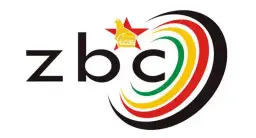DURING the election period state media is expected to give fair equitable coverage to all political parties contesting in the elections.
Several political parties and candidates have already publicly expressed dissatisfaction about the manner in which they are being covered by the national broadcaster.In turn, the national broadcaster has laid blame on the political parties about the state of affairs.
One of the queries has also been on equitable allotment of time and coverage of ruling Zanu PF, opposition Citizens Coalition for Change (CCC) and other political players.
ZBC has argued that coverage of Zanu PF rallies and other activities have been paid for, stating that no other party has done so.
In the past the ZBC has been ordered to report impartially by the High Court of Zimbabwe. Various election observer reports such as the European Union (EU)and SADC have also recommended that state-controlled media such as ZBC report in a fair and balanced manner.
So, what does the law say?
Constitution
Section 61 4 (b) of the constitution says state-controlled media must be impartial and afford fair opportunity for the presentation of divergent views and dissenting opinions.
Electoral Act
Section 160G (1) says public broadcasters shall afford all political parties and independent candidates contesting an election such free access to their broadcasting services as may be prescribed.
Section 160 further says a broadcaster or print publisher shall not be obliged, subject to section 160G, to publish any advertisement by or on behalf of a political party or candidate contesting an election, but if the broadcaster or publisher is prepared to publish any such advertisement—The broadcaster shall offer the same terms and conditions of publication, without discrimination, to all the political parties and candidates contesting the election.
SADC Principles and Guidelines Governing Democratic Elections
Section 4 (vi) of the SADC Principles and Guidelines Governing Democratic Elections requires freedom of the media, access to information by all citizens and equal opportunities for all candidates and political parties to use the state media during the election period.
What if the media is not adhering to the law?
If the state-controlled media such as ZBC fails to observe the law, then aggrieved parties may utilise Statutory Instrument 33 of 2008 which provides a complaints mechanism against the conduct of the media during elections.
Conclusion
The state-controlled media is required in elections to give access to all political parties and to report fairly and in a balanced manner during the election period.
Source NewZimbabwe









